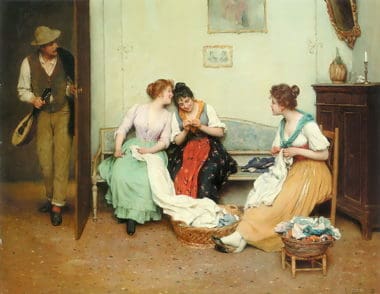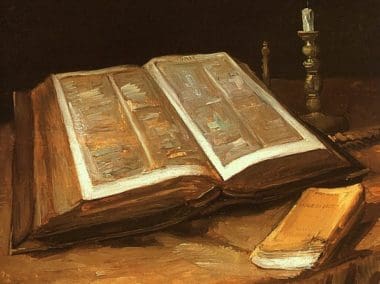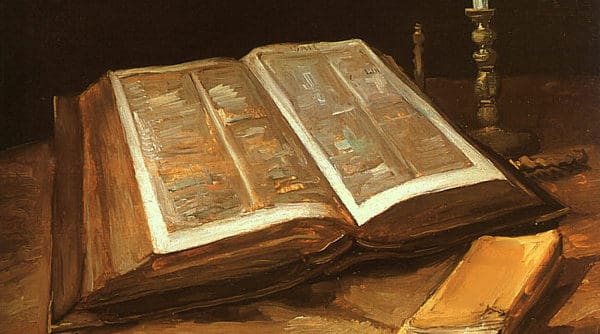OF WISDOM, FORETHOUGHT, AND READING THE HOLY SCRIPTURES
Of Wisdom and Forethought in our Actions
1. We must not give ear to every saying or suggestion, but warily and patiently ponder things according to the will of God. But alas; such is our weakness, that we often rather believe and speak evil than good of others. The perfect do not  easily credit everything spoken, for they know that human frailty is prone to evil and very subject to error in words.
easily credit everything spoken, for they know that human frailty is prone to evil and very subject to error in words.
2. It is great wisdom not to be rash in thy doings, nor to stand stiffly in thine own conceits. As also not to believe everything which thou hearest, nor immediately to relate again to others what thou hast heard or dost believe.
Consult with him that is wise and of sound judgment, and seek to be instructed by one better than thyself, rather than follow thine own inventions. A good life maketh a man wise according to God, and giveth him experience in many things. The more humble a man is in himself, and the more resigned unto God, the more wise and peaceful shall he be in all things.
Of Reading the Holy Scriptures
 1. Truth, not eloquence, is to be sought for in Holy Scripture. Each part of the Scripture is to be read with the same Spirit wherewith it was written. We should rather search after our soul’s profit in the Scriptures than after subtle arguments. We ought to read plain and devout books as willingly as those which are profound. Let not the authority of the writer be a stumbling block, whether he be of great or small learning; but let the love of pure truth draw thee to read. Enquire not who spoke this or that, but mark what is spoken.
1. Truth, not eloquence, is to be sought for in Holy Scripture. Each part of the Scripture is to be read with the same Spirit wherewith it was written. We should rather search after our soul’s profit in the Scriptures than after subtle arguments. We ought to read plain and devout books as willingly as those which are profound. Let not the authority of the writer be a stumbling block, whether he be of great or small learning; but let the love of pure truth draw thee to read. Enquire not who spoke this or that, but mark what is spoken.
2. Men pass away, but the truth of the Lord endureth for ever. God speaks unto us in sundry ways without respect of persons. Our own curiosity often hinders us in reading the Scriptures, when we examine and discuss that which we should rather pass over without more ado. If thou desire to profit, read with humility and faithfulness: nor ever desire the reputation of learning. Hear with silence the words of holy men. Let not the parables of the Elders displease thee, for they are not given without cause.
+
Editor’s Note: This is an excerpt from the “Imitation of Christ” by Thomas à Kempis.
Art: The Friendly Gossips, Eugene de Blaas, date not shown (though painter lived from 1843-1932), PD-US because of age; Still life with Bible, Vincent van Gogh, 1885, PD-US, PD-art; both Wikimedia Commons.




